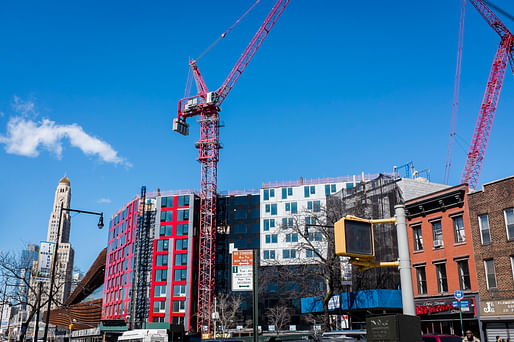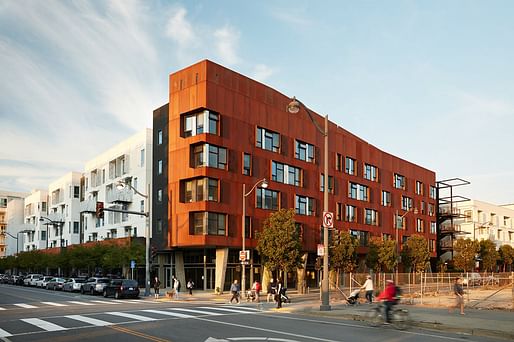

California Senator and presidential contender Kamala Harris and California Representative Maxine Waters have introduced the "Housing is Infrastructure Act," a $107 billion bill that aims to upgrade and expand affordable housing across the country. The bill is the latest in a series of efforts geared toward bringing new sources of funding for the retrofitting and expansion of America's affordable and public housing stocks.
A breakdown of the funding package highlights the wide-ranging and targeted nature of the proposal. The package, for example, aims to bring $70 billion to a Public Housing Capital Fund that would be tapped to build new public housing units and renovate existing public housing complexes, CNBC reports. $10 billion would head to the Community Development Block Grant program to focus on eliminating zoning impediments and "other requirements that limit affordable housing development," CNBC writes. In addition, $6 billion in funding would serve to finance housing for seniors, people with disabilities, and Native American communities. The program would also bring $5 billion to the HOME Investment Partnership Program, a vehicle that helps build and rehabilitate rental and owner-occupied homes for low-income families. $5 billion would flow into the National Housing Trust Fund to help build "hundreds of thousands of new rental units that would be affordable for the lowest income households," according to Harris's website. $2.5 billion would get directed to the Capital Magnet Fund, a competitive grant allocation program that fuels affordable housing development around the country. And lastly, an additional $1 billion would go toward a Rural Multi-Family Preservation and Revitalization Demonstration program that will "fully address the backlog of capital needs for the Section 515 and 514 rural housing stock."
“Too many Americans are fighting tooth and nail to keep a roof over their heads as our nation continues to face a housing affordability and homelessness crisis,” Senator Harris explained in an online statement, adding, “Housing is a human right, and we must act now to tackle the affordable housing crisis and ensure everyone has a safe and accessible home.”
In a supporting statement, Representative Waters, who chairs the agenda-setting House Financial Services Committee, said, "We are in the midst of a housing affordability crisis across the country, caused in part by the lack of affordable and available rental units, rising rents, gentrification, and dilapidated public housing."
"For example," Waters added, "10,000 units of public housing are lost each year as a result of disinvestment ... I urge my colleagues to support this legislation to make the necessary investments in rural, suburban, and urban housing markets, and ensure all future conversations around infrastructure investments include affordable housing.”

The bill is the third legislative effort in as many weeks that aims to address the critical state of affordable and public housing in the United States.
Last week, Minnesota Representative Ilhan Omar unveiled an ambitious $1 trillion "Homes for All Act" that would, among other elements, nearly double total housing production in the United States by building 12 million public and affordable homes across the country.
The week prior, New York Representative Alexandria Ocasio-Cortez and Vermont Senator Bernie Sanders pitched their $172 billion "Green New Deal for Public Housing Act," the first legislative effort to come out of the Green New Deal Framework. The bill would would bring maintenance and performance upgrades to over 500,000 public housing units across the country, among other efforts.
The bills exist somewhat on a spectrum, with Rep. Omar's being the by far the most ambitious, and the Green New Deal for Public Housing Act and the latest plan occupying related territories in terms of plausibility and scale. Together, the three represent an attempt to begin to address the nationwide affordability and quality of life crisis at the national scale through the federal government, a vision that has so far alluded housing activists and tenants alike, as most of the legislative reforms that have taken shape so far have occurred at the state or municipal levels, like in California and Minneapolis, respectively.
No Comments
Block this user
Are you sure you want to block this user and hide all related comments throughout the site?
Archinect
This is your first comment on Archinect. Your comment will be visible once approved.